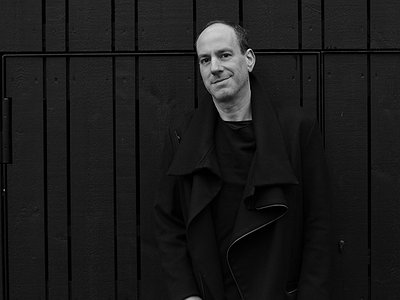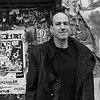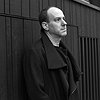Part 3
How is writing the music and having it performed live connected? What do you achieve and draw from each experience personally? How do you see the relationship between improvisation and composition in this regard?
This is hard to answer succinctly. When I am writing I think all the time about what will happen in a live performance, but I also know that no live performance will really be how I might imagine it. That said, I try to be really conscious of the acoustic and psychological realities of what I’m making, trying not to get pulled into some sort of solipsistic fantasy world—which is very easy to do.
Some performances become revelatory experiences where you discover things about your piece and even yourself that can be startling and which you had not foreseen, others are much more confirmative where it becomes about helping get things as close as possible to what you had imagined. When things don’t go well, it can be really hard to be on display but have so little control.
Improvisation is an important model (and practice) for a lot of composers, but in my work, I tend to work with highly composed situations. Even when my music feels improvisatory, that feeling is mostly an illusion.
Time is a variable only seldom discussed within the context of contemporary composition. Can you tell me a bit about your perspective on time in relation to a composition and what role it plays in your work?
I’m a bit surprised at the idea that we seldom discuss time. Time is probably the most central thing in music. Grisey said something like “Music shapes time” and that’s certainly partially true. The temporal dimension controls the way music engages with everything else. I speak a lot about the way music engages memory, but the backdrop for how that happens is all about time.
To give an example from one of my pieces, "L’abîme" from the new album is built around a series of very physical phrases paced around breath and bow lengths, these sort of natural-time events happen in a group of three soloists, whose sounds get reflected and diffracted out into the ensemble. In that process they start to inhabit multiple overlapping time scales, sometimes compressed, sometimes stretched, even very much so. This hopefully allows multiple kinds of time to coexist and interact, in a way like space flows when you are on a train and where you look (near or far, out the window or inside) changes your sense of speed and motion. These multiple time-streams are all bound together within a more glacial, architectural kind of time that warps the context in which local time is flowing …
I guess this may be part of why we sometimes avoid talking about this, the metaphors become so abstract, but the feeling of time’s passage is at the very heart of how we experience the work.
How do you see the relationship between the 'sound' aspects of music and the 'composition' aspects? How do you work with sound and timbre to meet certain production ideas and in which way can certain sounds already take on compositional qualities?
One of the great insights of the so-called ‘spectral’ approach to composition that I have been a part of was that a dialectic view of musical material and form is profoundly false. The idea that a composer uses sounds and timbres as building blocks for compositional ideas that are somehow separate from the sounds they are made of just isn’t how music works.
Sounds and timbre don’t take on compositional aspects. They are compositional aspects, and even things like time aren’t absolute (at least not perceptually) they are warped by the elements that fill them. A slow, nearly empty passage of 30 seconds and a dense moving one will almost surely not be equal in meaningful duration. As in any art, the means and the ends are in a constant and ultimately inseparable dialogue.
Some composers work more from the bottom up, using sounds to build structures. And some work from the top-down, deriving events that will create an overarching structure. In the end it all meets in the middle, and successful music can only come from a perfect balance of ends and means. The sounds and timbres will be changed by their compositional situation and they will also create and alter that situation.
Our sense of hearing shares intriguing connections to other senses. From your experience, what are some of the most inspiring overlaps between different senses - and what do they tell us about the way our senses work? What happens to sound at its outermost borders?
It’s clear that sound and movement are linked, whether through brain scans of violinist’s whole motor cortex area that controls their left hand lighting up even when they passively listen to music, or through toe-tapping or dancing. But music can alter and shape our perception of almost everything.
There is an amazing study where they associate beeps with flashes of light. They play sets of three quick flashes associated with three beeps. Then after a while they dissociate them sometimes putting two beeps with three flashes or vice versa, in these cases its actually the sound that controls what we see. Three beeps causes us to ‘see’ three flashes even if in reality there were only two ...
Other links between sound and the body can be even more extreme. I once saw a study (done by some sort of evil scientist, I guess) showing that you could induce an asthma attack in kids with asthma just by playing audio recordings of another child’s attack.
I think we use sound as a sort of master-clock connecting people locked inside their separate bodies with each other. It pulls together our heartbeats and breathing (not in an exact way but still meaningfully) and lets us feel connected. We don’t always pay attention to sound but in some ways, whether we realise it or not, sound is shaping the way we perceive everything else.
Art can be a purpose in its own right, but it can also directly feed back into everyday life, take on a social and political role and lead to more engagement. Can you describe your approach to art and being an artist?
Activism is something I deeply admire, but for my art I’ve always been hesitant to go too far down this path. Music, at least the kind I do, is so much about abstract sonic and physical and emotional things that I’ve always feared that links to more overtly topical or political issues would feel more like a packaging choice than something deeply embedded in the work.
That said, I try very hard to engage with basic aspects of how our minds and bodies and emotions operate and also to explore the way those things can bind together an audience as people. All of which does contain a social and political perspective, but one centred on fostering the empathic links we can share through the magic mix of individual experience and social context that exists in live music.
Beyond that, my political activities are more those of a person who happens to be an artist. I’m mindful of the fact that any special skills I might have in one domain don’t make my insights or abilities in other domains special.
It is remarkable, in a way, that we have arrived in the 21st century with the basic concept of music still intact. Do you have a vision of music, an idea of what music could be beyond its current form?
Music has a special power to alter our internal states. We often use it this way in our lives, whether intentionally or not. There are songs we put on to get ourselves revved-up or because we are sad or to trying to hook up with someone or so many other things. We are using the music to change our feelings.
When we choose the music ourselves, you can think of this as a kind of self-manipulation. However, when you choose to let an outside artist do this to you or with you—change the way you feel and experience things—it’s that ‘consensual manipulation’ that I previously mentioned.
I think this offers a powerful model for musical experiences. This is especially true when music starts to embrace more than just sonic aspects and takes on the whole situation and experience. Look at what a great closing set at Berghain does to people. More experimental art can also make use of this deep ability to alter people over time and produce powerful and unexpected shared experiences.







